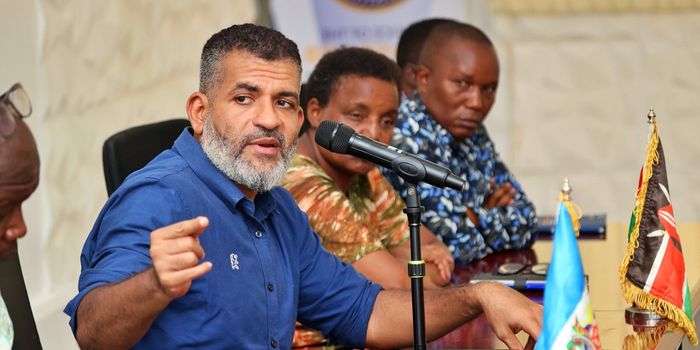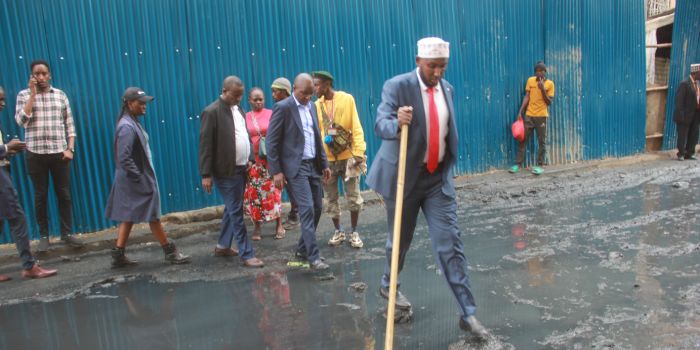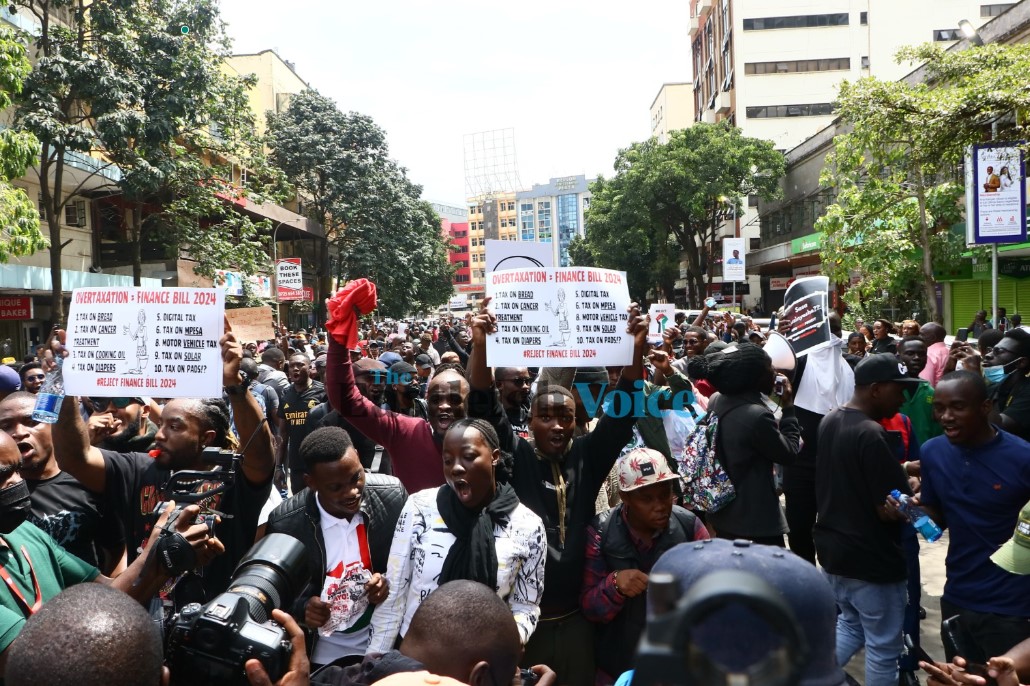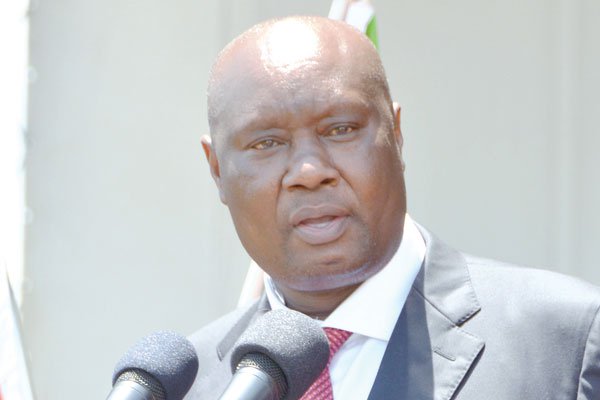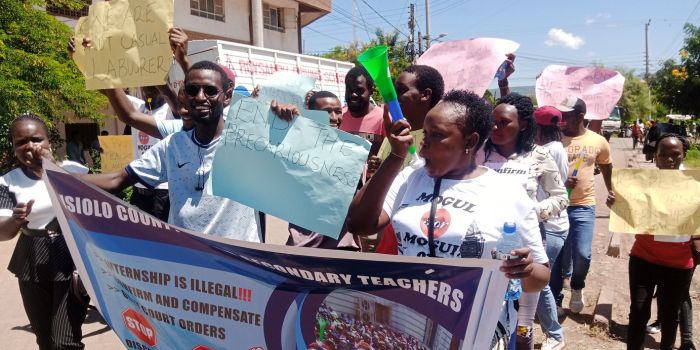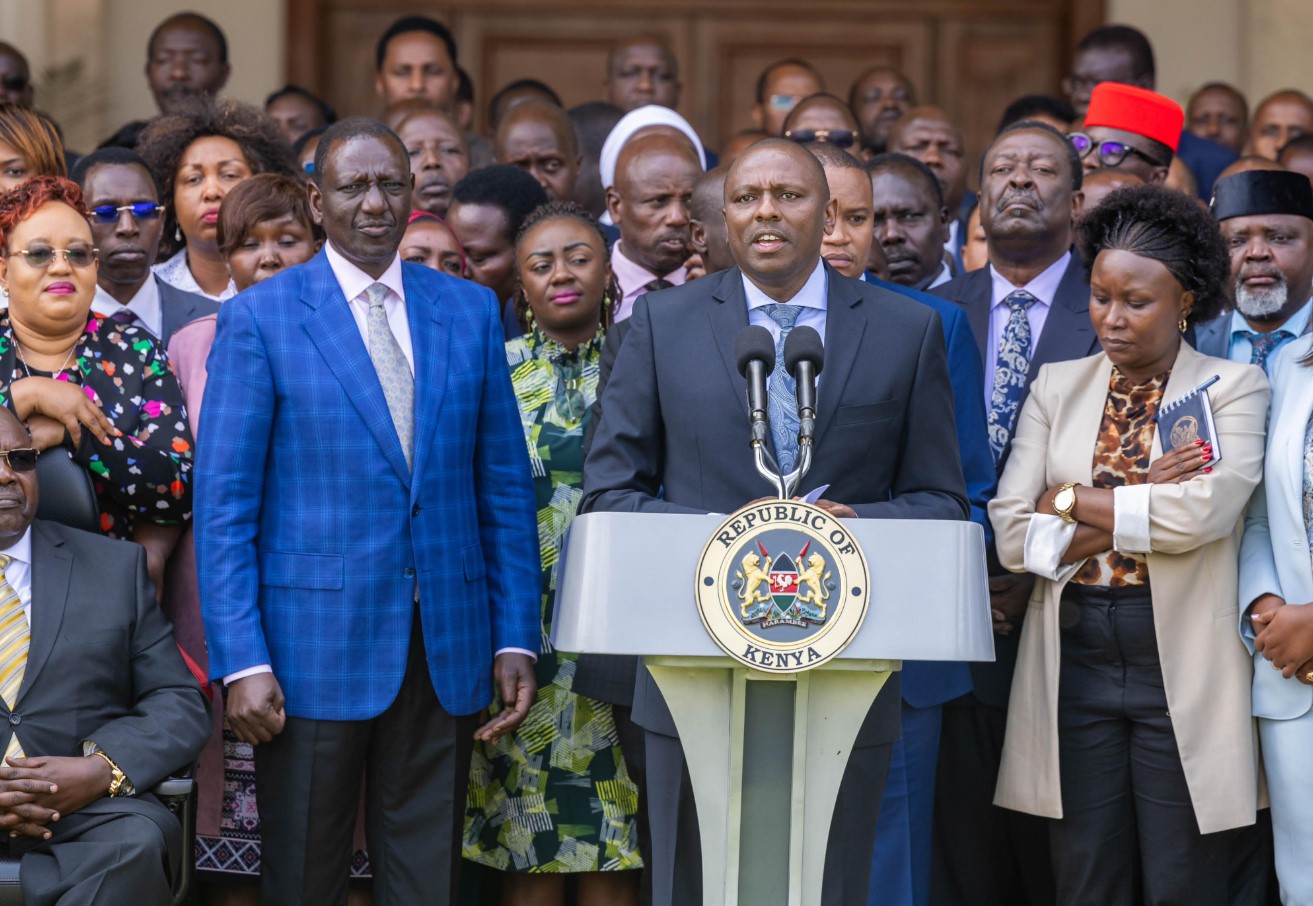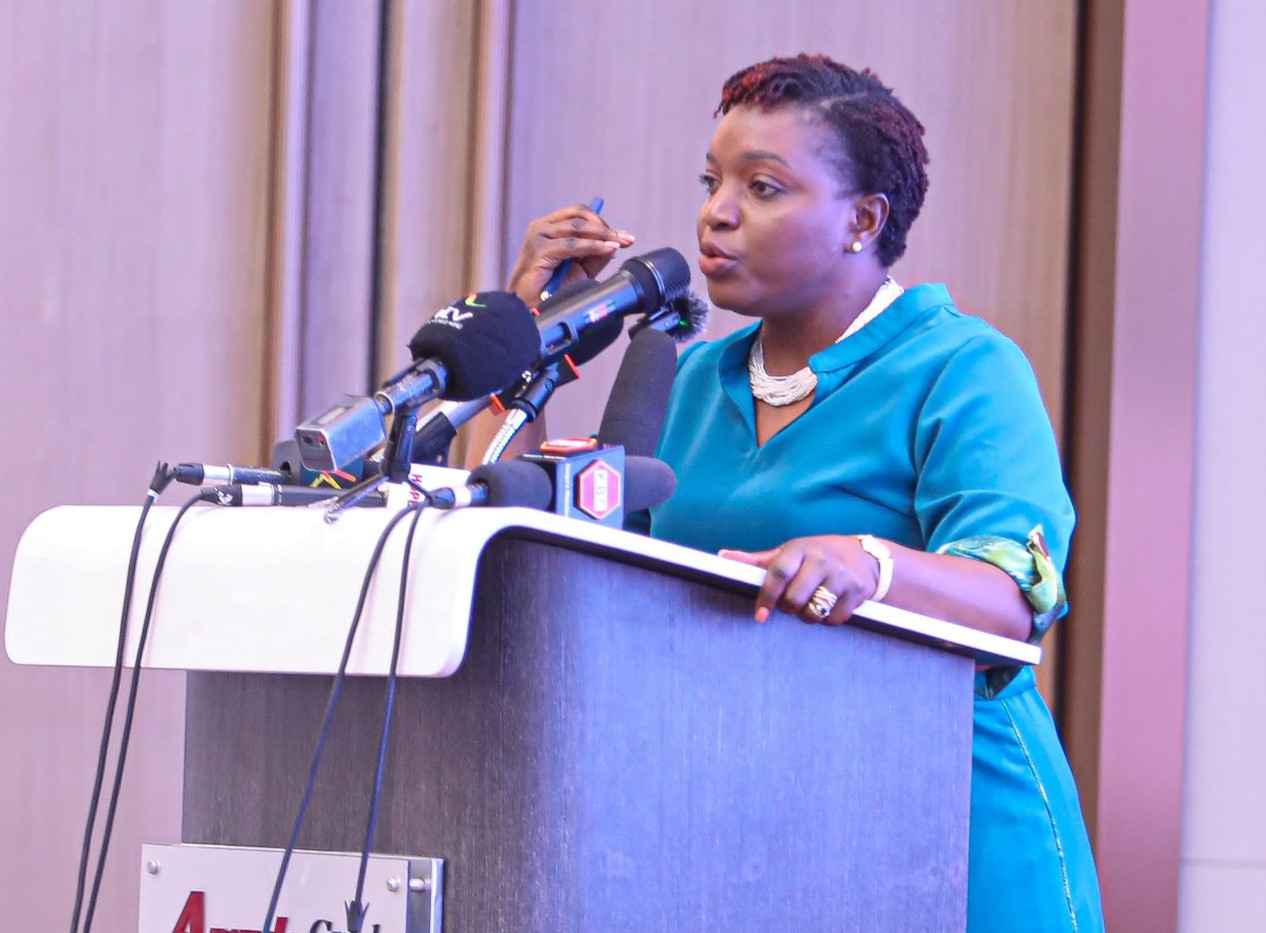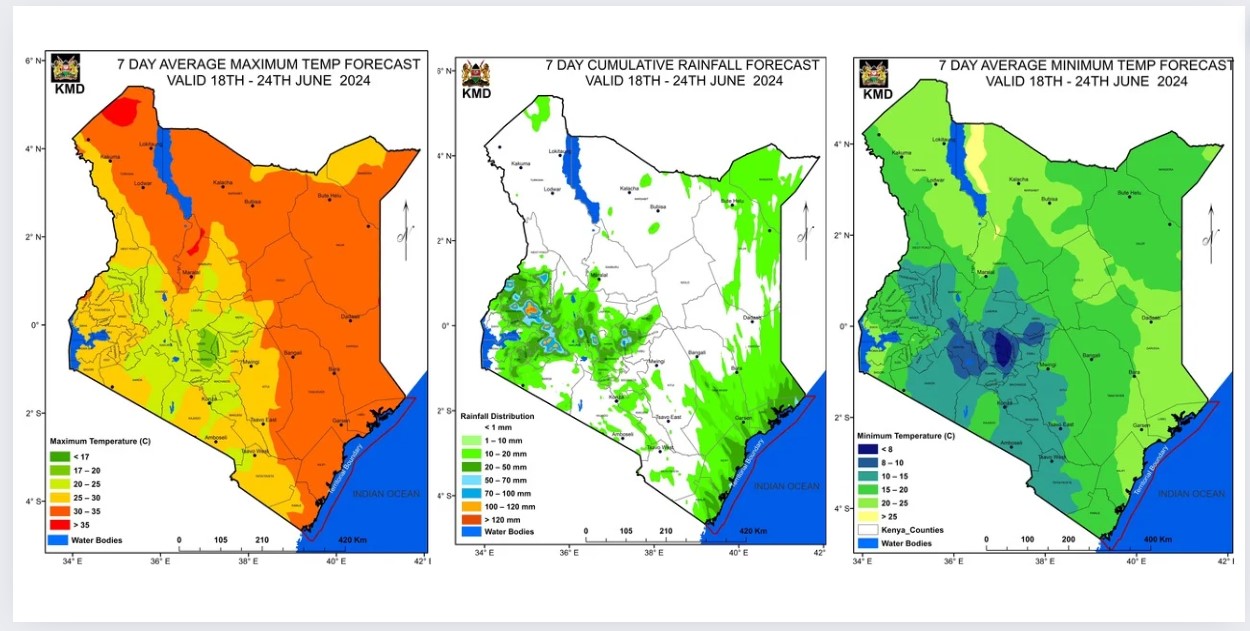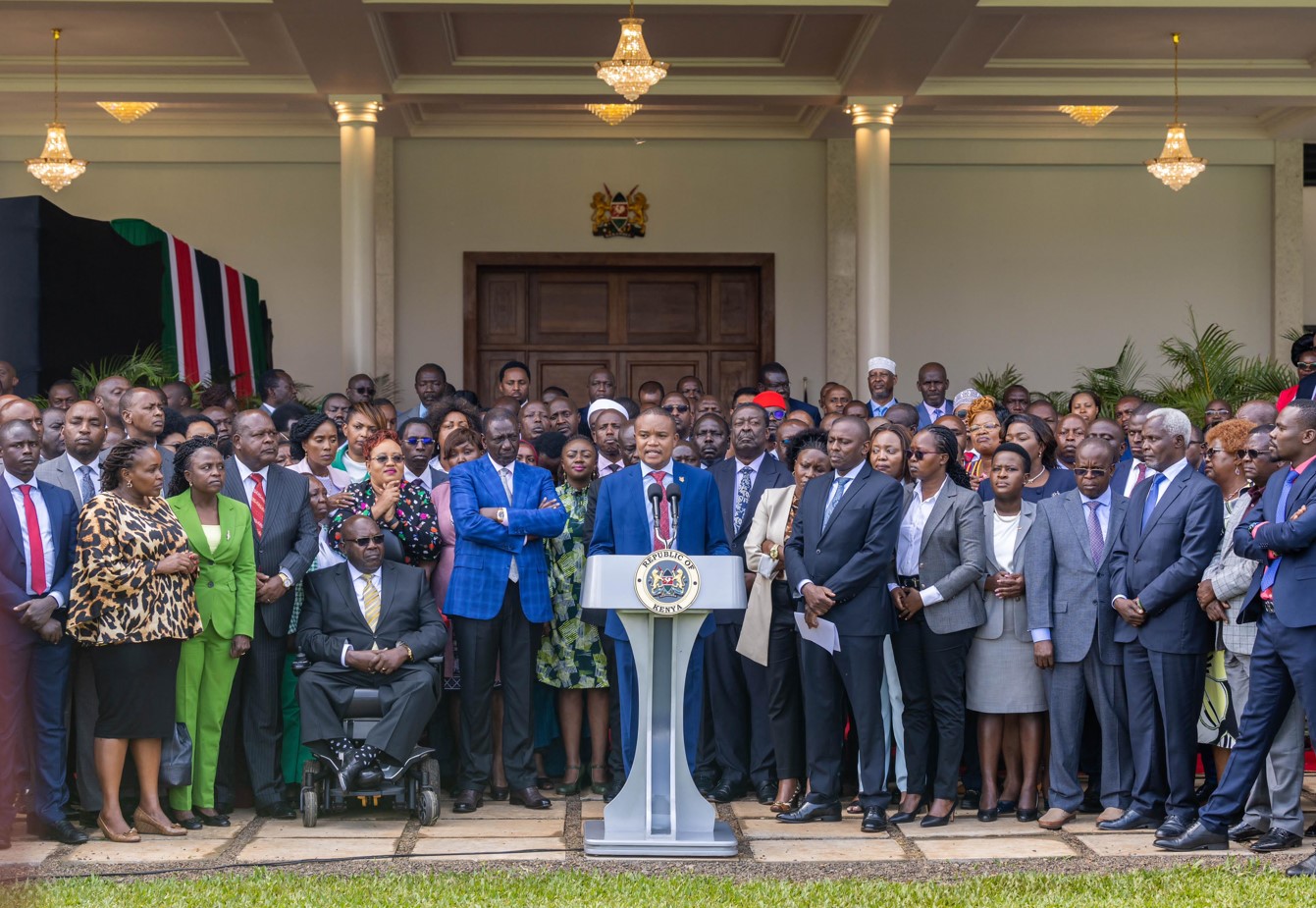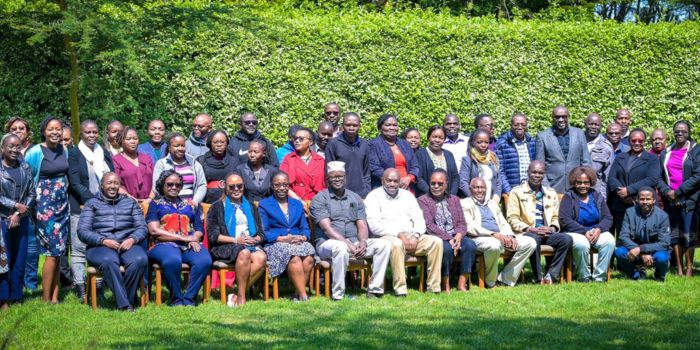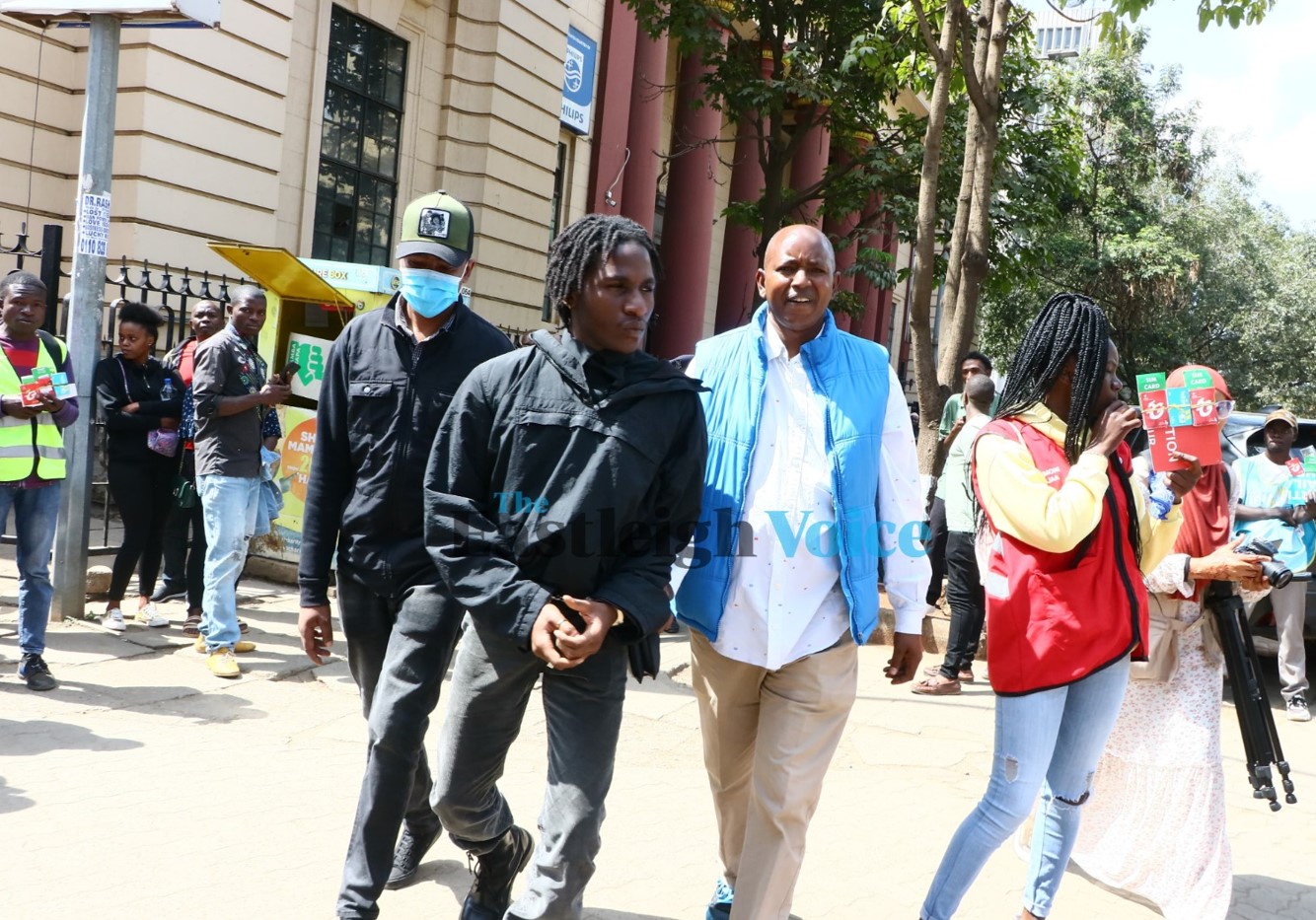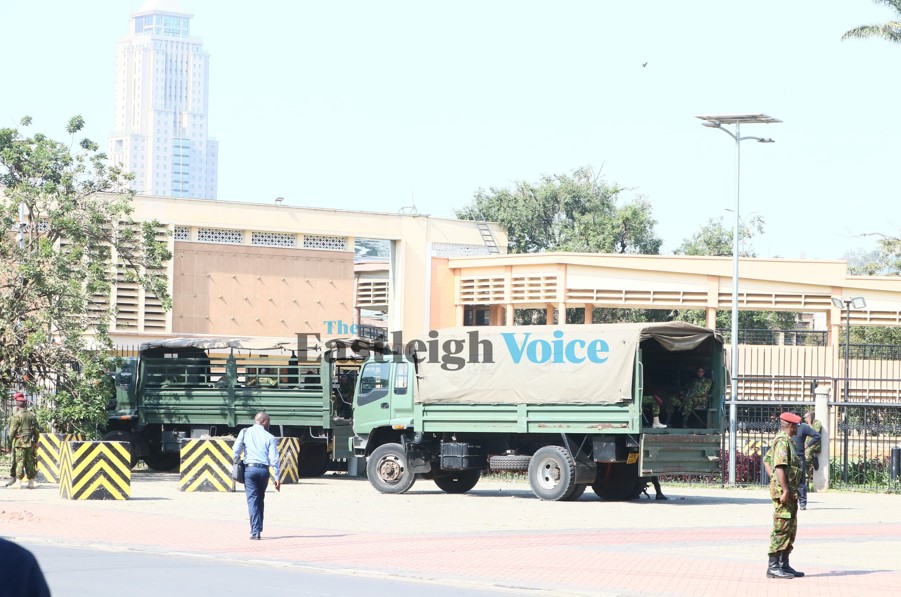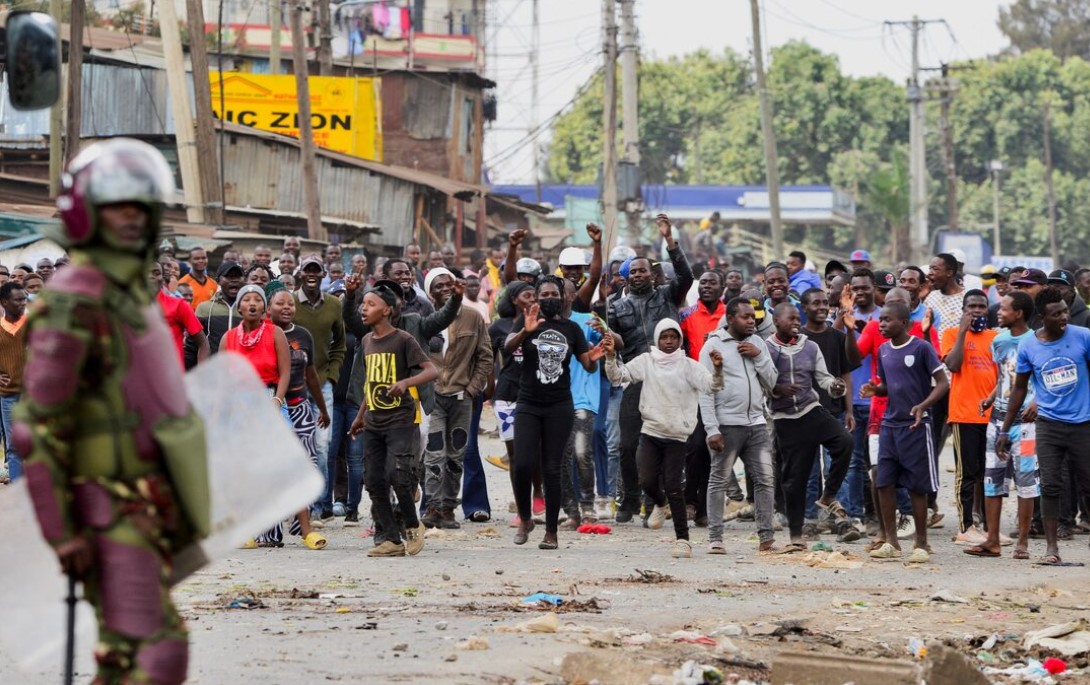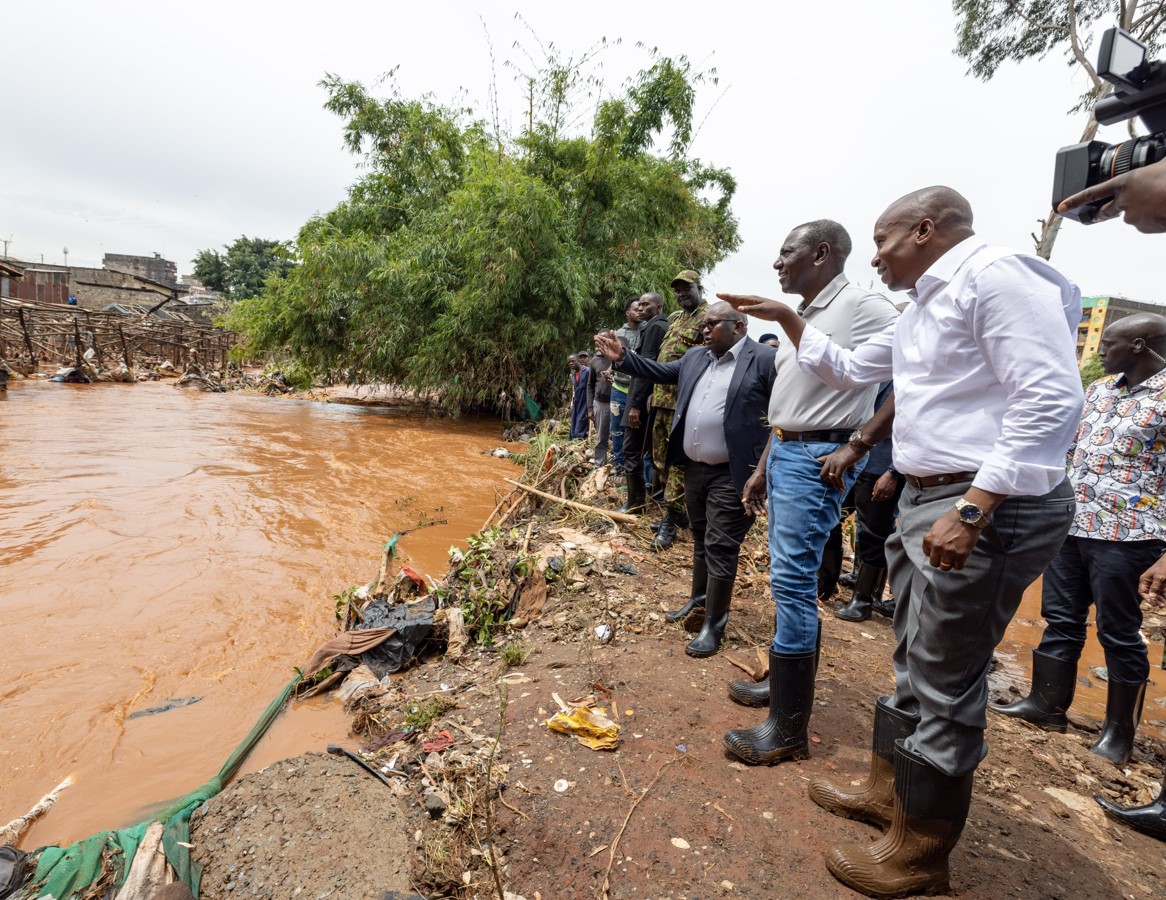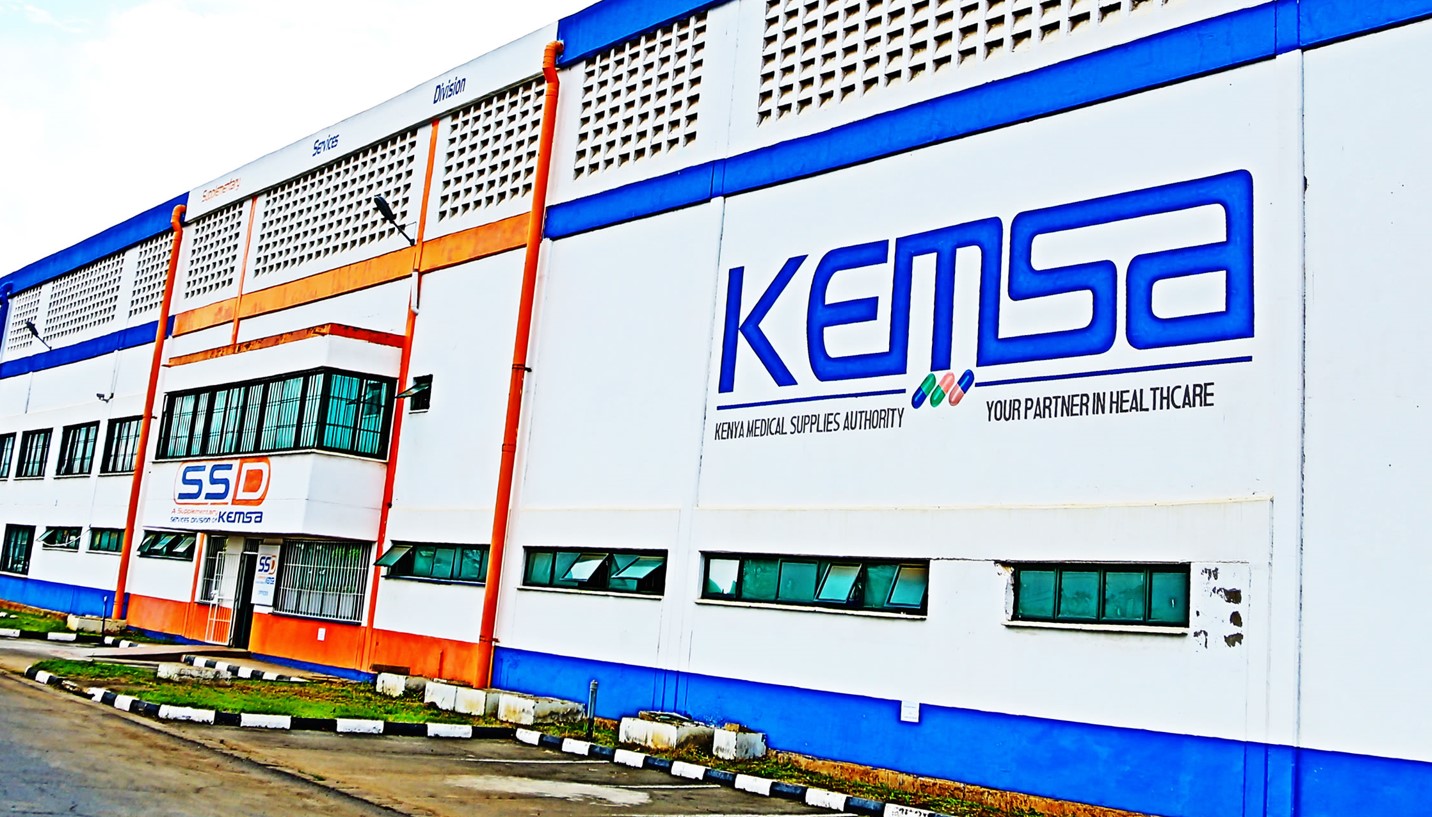Isiolo livestock hub to link Northern Kenya to global markets
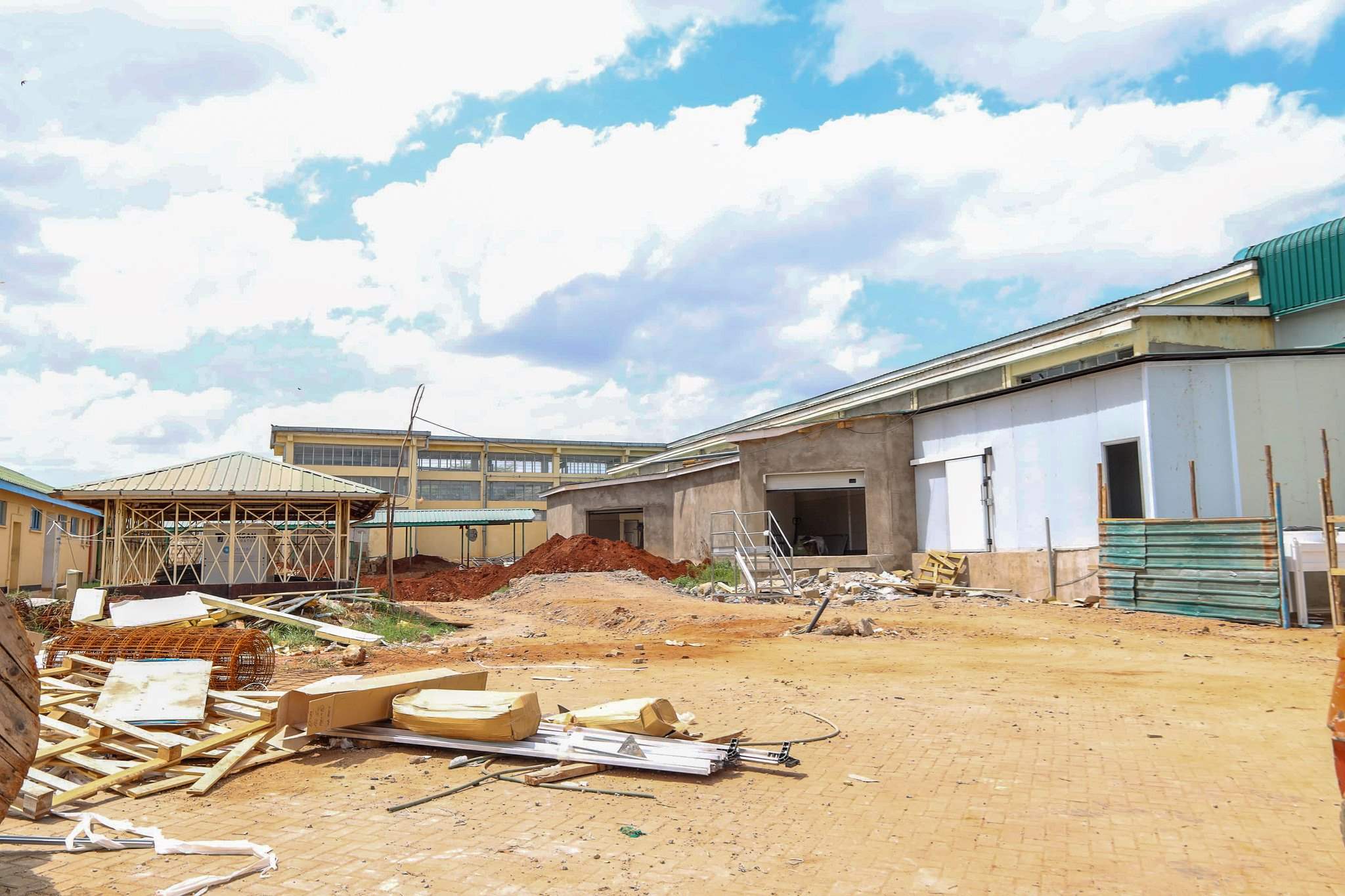
By Waweru Wairimu |
Kenya's current meat production of 464, 000 metric tonnes is way below the demand which stands at 660, 000 metric tonnes, with experts citing animal breeding, fodder farming and value addition among the ways to sustain the demand.
The government is set to unveil a livestock hub in Isiolo aimed at opening up the Northern region to the international market, as the local export abattoir whose construction started 16 years ago nears completion.
Public Service CS Moses Kuria revealed that his Ministry, through the National Youth Service, would commission a livestock corridor that will connect the Northern Kenya counties to the Isiolo hub.
The county government, Kuria claimed, had already committed to offering land for an NYS camp where modern slaughterhouses would be set up in line with NYS's strategic plan for the commercialisation of production units.
Keep reading
CS Kuria stated that the future of Kenya lies in the North and that the government will exploit the 80,000 acres of the NYS Kirimon ranch in Laikipia North to raise animals for export to international markets.
According to Ministry of Agriculture data, nearly two-thirds of red meat is produced in arid and semi-arid regions, where pastoralists raise around 70 per cent of the country's livestock, which includes 9.7 million beef cattle, 9.6 million goats, 8.3 million sheep, and 800,000 camels.
Feedlots in neighbouring Marsabit, Samburu, Laikipia, Wajir, Garissa, Meru, and Mandera supply the hub, which would use the Isiolo International Airport to export animal goods to other nations, particularly those in the Middle East.
"We have an International airport in Isiolo county where we can do Halal business from Kirimon ranch and export meat to Jakarta, Indonesia, within seven hours," Kuria said during Wednesday evening's Iftar dinner at a Nairobi hotel.
Kenya's current meat production of 464, 000 metric tonnes is way below the demand which stands at 660, 000 metric tonnes, with experts citing animal breeding, fodder farming and value addition among the ways to sustain the demand.
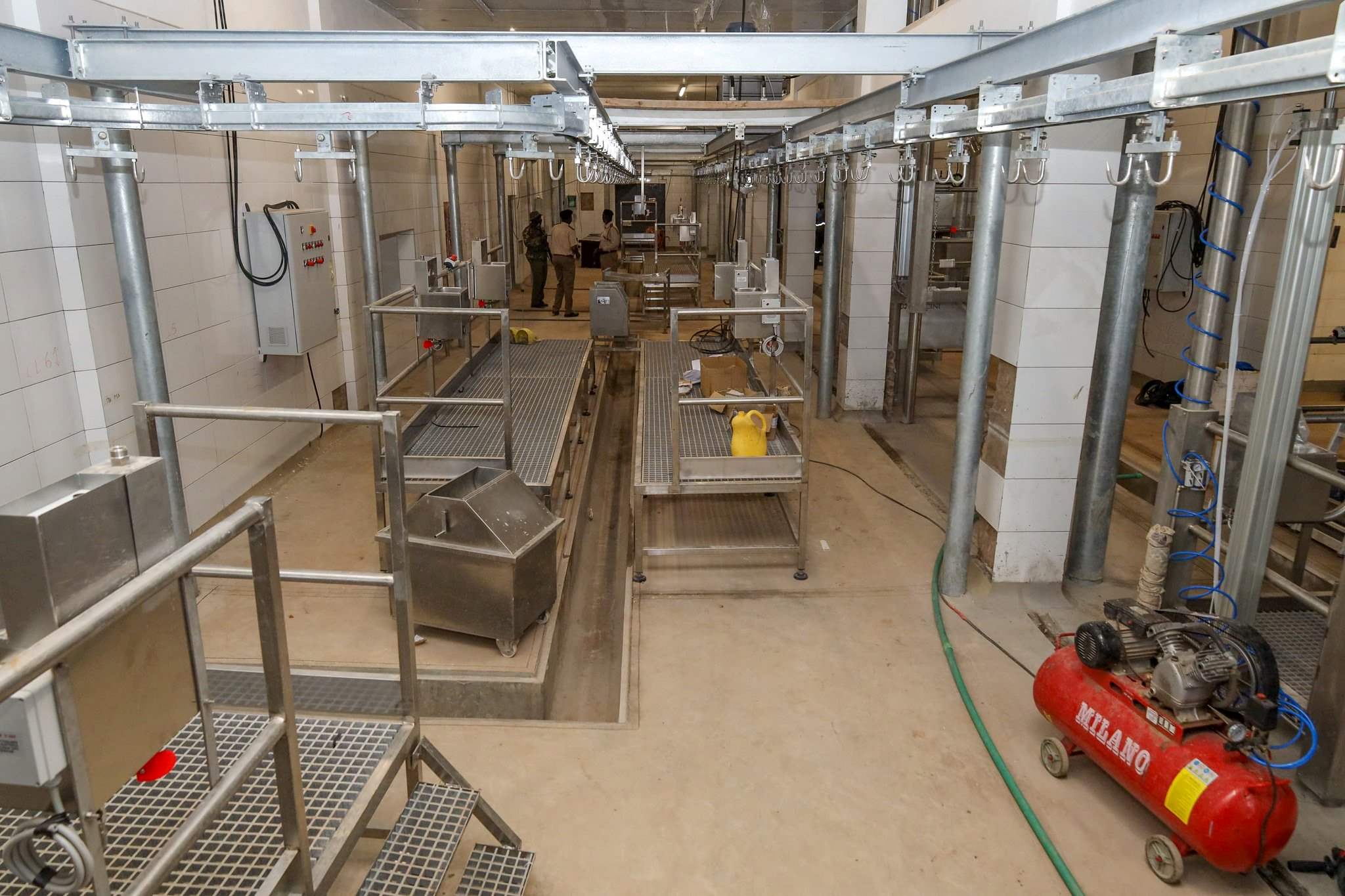 The Isiolo abattoir will serve as a game-changing meat hub, benefiting 6 surrounding counties by sourcing raw materials from their livestock. Photo: X/mithika_Linturi
The Isiolo abattoir will serve as a game-changing meat hub, benefiting 6 surrounding counties by sourcing raw materials from their livestock. Photo: X/mithika_Linturi
The development will cushion pastoralists in the region who have for a long time suffered at the hands of middlemen due to the lack of a reliable market for their products.
A special economic zone will facilitate the value addition of livestock products that will be processed at the Isiolo abattoir, ending the culture of exporting live animals which makes farmers incur losses.
Farmers will be trained on how to improve the quality of the animals and disease control so that they can cash in from the hub which will be a game-changer in the region's economies.
In May last year, Kuria, then serving as Trade CS, signed a deal with the government of Indonesia for Kenya to export 700,000 heads of cattle to the country yearly.
The agreement followed a meeting with the Director General of Indonesia Animal Production and Animal Health, Dr. Ir Nasrullah in Jakarta.
The two countries agreed to hasten approval protocols that were to expedite the first shipment of 20,000 heads of cattle three months later.
President William Ruto and his Indonesian counterpart Joko Widodo in August 2023 signed a memorandum of understanding to improve the balance of trade in five sectors which requires Kenya to export at least 100,000 livestock to the South Asian nation yearly.


